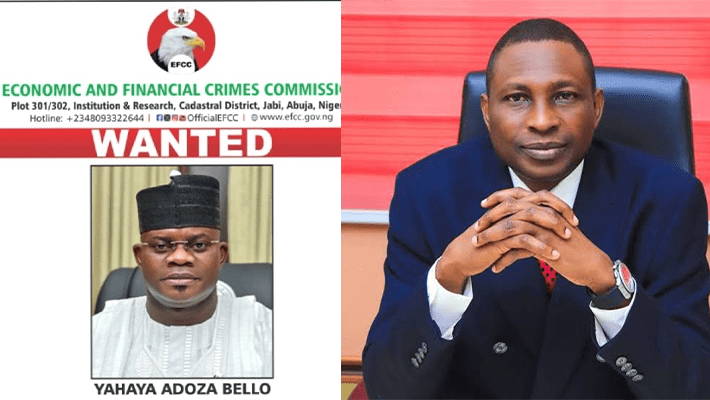Yahaya Bello, the former governor of Kogi state, has requested that his N80.2 billion fraud case be transferred from Abuja to Kogi. At a recent court session, his lawyer, Adeola Adedipe, argued that since the alleged offense occurred in Kogi, it is only proper for the case to be tried there.
As there has been no response from the prosecution team or a decision from the chief judge, there have been lots of speculations about Bello’s request to challenge the authority of the legal system, leaving many to wonder: Is Yahaya Bello above the law?
Is Yahaya Bello Above the Law?
Bello’s request to move his case to Kogi has stirred controversy. One can’t help but ask why he is so eager to have the trial in his home state. Is it because he believes he will receive a more favorable outcome there? Or does he think that the legal system in Kogi will be more lenient towards him?
The justice system is designed to be impartial, ensuring that everyone, regardless of their status, faces the same legal scrutiny.
However, when a powerful figure like Bello makes such a request, it raises concerns about whether the system can truly hold influential individuals accountable.
Is Bello trying to use his influence to manipulate the location of his trial? And if he succeeds, what does this say about the integrity of the judicial process? Are there underlying factors that might make a trial in Kogi more advantageous for him?
Why is it Still Impossible to Arrest Bello?
On April 17, 2024, Bello evaded arrest in a dramatic incident broadcast on live TV. The EFCC had obtained an arrest warrant from an Abuja High Court, but Bello, armed with a protective order from a Lokoja High Court, called on President Bola Tinubu to intervene.
His supporters surrounded his Abuja home, preventing EFCC operatives from making an arrest, and his successor, Governor Ahmed Usman Ododo, helped him escape.
This raises critical questions about the judiciary’s role. Why would a court issue an order preventing the arrest of a former governor facing serious allegations? This isn’t uncommon; outgoing governors frequently obtain such orders to avoid prosecution.
Why hasn’t the National Judicial Council (NJC) addressed this issue of conflicting court rulings? Shouldn’t the judiciary stop enabling politicians to evade the law after their tenure?
By granting orders that protect former governors from arrest and prosecution, the courts effectively grant them a form of illegal immunity, undermining efforts to hold them accountable.
Governors have often manipulated democratic institutions for personal gain, weakening the State Houses of Assembly and stripping them of their constitutional powers to enforce checks and balances, particularly in state fund management.
Former President Olusegun Obasanjo established the EFCC to ensure that former officeholders could be held accountable once their immunity expired. However, politicians now use the courts to delay and potentially evade justice
Is the EFCC a Toothless Bulldog?
The Economic and Financial Crimes Commission (EFCC) is tasked with tackling corruption and financial crimes in Nigeria. However, its ability to effectively carry out this mission has often been questioned.
In the case of Yahaya Bello, despite the serious allegations and the substantial sum involved, Bello remains free and seemingly unperturbed.
Is the EFCC truly capable of holding powerful individuals accountable, or is it merely a toothless bulldog? The EFCC has made significant strides in various cases, yet high-profile figures like Bello appear to navigate the system with relative ease.
Why hasn’t the EFCC been able to make a decisive move against Bello? Are there external pressures or internal limitations hindering their efforts?
The perception of the EFCC’s effectiveness is crucial. If the public begins to see the agency as ineffective, especially in high-profile cases, it could erode trust in the entire justice system.
Can the EFCC rise to the occasion and demonstrate that no one is above the law, or will it continue to struggle against the formidable influence of powerful individuals like Yahaya Bello?


